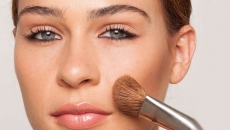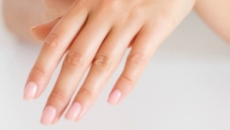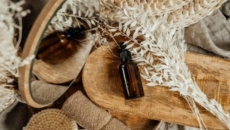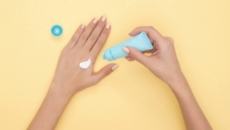If you’re wondering how to achieve brighter, smoother, clearer, softer, glowier skin, it’s really quite simple: Exfoliation. Incorporating this step into your beauty routine is the optimum way to reveal your best complexion.
“When we’re babies, the dead skin cells at the top layers of our skin slough off easily; as we age, that function slows,” explains Jean Godfrey-June, Beauty Director at goop. “That’s why babies’ skin looks so beautiful: dead skin cells that stick to skin leave it looking uneven and dull, and the cells themselves can clog pores. And skin treatments—even just plain moisturizer—have a harder time getting into skin to do their work when dead skin cells, dirt, and debris are in the way.”
Exfoliation helps to open pores which helps to reduce acne breakouts, says Dr. Jason Rivers, board-certified dermatologist and founder of Riversol skin care brand. Other benefits of exfoliation, Rivers says, are a reduction in uneven skin tone and hyperpigmentation. It can also produce collagen stimulation.
“The mild disruption of the skin barrier will also allow other agents (e.g. serums) to penetrate the
skin to some degree, potentially enhancing their benefits,” Rivers explains. ”Certainly, the reduction in surface skin cells from the upper most layers of the skin (stratum corneum) will make the skin smoother which makes the
skin appear brighter and allows for the more even application of makeup.”
There are two ways to approach exfoliation: using a scrub which has small particles that work to “scrub” away the dead cells or a chemical product that lifts them away.
“Physical exfoliants—anything from a washcloth to a scrub containing beads or small granules that you massage into your skin manually—use grit or texture to sweep away the top layer of cells,” Godfrey-June says. “They can feel really nice on skin—or can be too intense, depending on the product and your skin. The only real downside is using irregularly-shaped particles (think the really harsh apricot-kernel-type scrubs of the ‘90s) can cause micro tears in skin, which can disturb the skin’s natural barrier.”
Chemical exfoliators, which are acids, help to dissolve the bonds holding skin cells together Rivers says. The most common ones are alpha hydroxy acid (AHA)), beta hydroxy acid (BHA), and polyhydroxy acid (PHA) or fruit-derived ones.
So how to choose the right one for your skin? Rivers says chemical exfoliators are generally safe to use on dry to normal skin but recommends for those with sensitive skin, “a test area should be tried first before using the product over large areas of skin.” If the skin reacts negatively, rinse it off immediately.
For acne-prone and oily skin, Godfrey-June says both physical and chemical exfoliation can work. “If you get breakouts often, use chemical exfoliators to fight the oil and acne from a deeper level in the skin. AHA and BHA acids (like salicylic, lactic, and glycolic) will be most effective. Use a physical exfoliator—one with fine, even particles—and avoid abrasive physical exfoliators with harsh grains.”
For sensitive skin she suggests a PHA chemical exfoliant, which is gentler on skin than AHAs or BHAs, “or a mild, gentle, even-particled physical exfoliant will efficiently remove dead skin cells but are less likely to irritate skin.” Once your skin is acclimated, you can slowly introduce AHAs and BHAs and stronger physical exfoliants to your regimen.
AHAs, she says, work well for dry skin and if you experience any stinging, just rinse the product off, and adds that physical exfoliants or a combination of both can also be effective.
“The best time to exfoliate is in the evening,” advises Rivers. “Skin does need to recover, that is why you should not use these products daily.” He suggests only exfoliating your skin two to three times a week but if you have very dry or sensitive skin, it should be limited to once a week.
After exfoliation, Rivers says apply a serum and/or a moisturizer but advised not to use “any toners as
this will reduce surface oils further and could lead to skin irritation.”
Godfrey-June advises that you ensure that your moisturizer doesn’t contain any exfoliant ingredients like Vitamin C which is a mild exfoliant. It shouldn’t be used it after exfoliating with strong products. “And even if you’re using it after exfoliating with less-powerful products, watch how your skin reacts.”
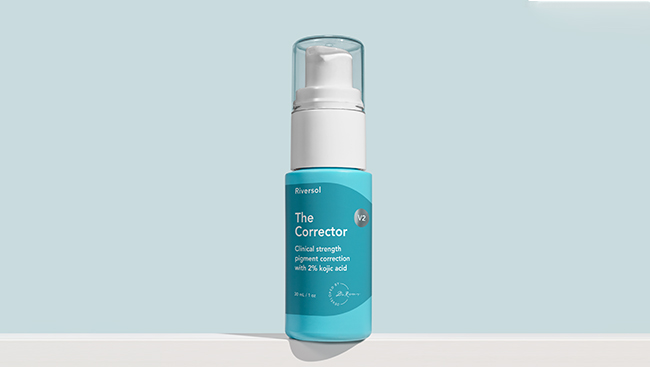
Exfoliating makes skin more sensitive to sun exposure, so wearing a sunscreen is vital to both protecting your skin and avoiding any irritation.
“If you don’t wear it, you’re undoing all the benefits you just gained with exfoliation.” Godfrey-June says.


